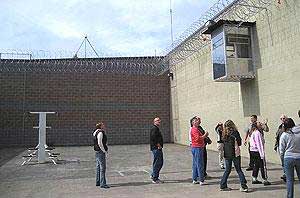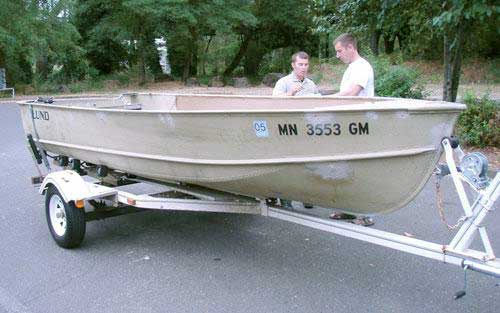Sheriff
Clackamas County Interagency Task Force
503-557-5809 or complete the online Tip Form.
The Clackamas County Inter-agency Task Force (CCITF) is a coordinated group effort by local and federal law-enforcement officials to reduce illegal drugs and related crimes -- including child endangerment -- in Clackamas County.
The United States Office of National Drug Control Policy (ONDCP) designated Clackamas County as a High Intensity Drug Trafficking Area (HIDTA) in 2008. The CCITF is funded in part by Oregon's HIDTA program grants, which administered by ONDCP.
The CCITF's investigative focus is identified by Task Force member communities and tips from the public.
How does it work?
The Task Force targets Clackamas County’s illegal drug-trafficking organizations (DTOs) and distributors through interdiction of sales, trafficking and related crimes. The CCITF handles calls large and small -- from street-level sales to wide-scale DTOs.
The CCITF also works with local community organizations and government agencies (including Code Enforcement and crime-prevention organizations) to step up the pressure on offenders.
Which agencies participate in the CCITF?
The CCITF employs full- and part-time personnel. It's supervised by a Clackamas County Sheriff's Office Lieutenant and two Clackamas County Sheriff's Office Sergeants. Its members include investigators, federal law-enforcement agents, analysts and support staff. The CCITF is also overseen by an Executive Board comprising representatives from member agencies.
Participating agencies and staff have included:
- Gladstone Police
- Oregon City Police
- Canby Police
- Milwaukie Police
- Clackamas County Sheriff’s Office
- Clackamas County Community Corrections
- Clackamas County District Attorney’s Office
- Oregon State Police
- Federal Bureau of Investigation (FBI)
How is the CCITF funded?
In agreement with participating agencies, the CCITF is funded as a cooperative effort. The Task Force is partially funded by a yearly HIDTA grant, as well as other grants. Participating agencies jointly fund common equipment, including office space and phones. Each CCITF member uses equipment provided by his or her own home agency.
The Sheriff's Office's 10-member participation in CCITF is funded by a five-year public-safety local option levy.
I have an illegal drug problem in my neighborhood. How can I send tips to the CCITF?
Contact your local member agency or call our CCITF tip line: 503-557-5809. You can also e-mail us tips using this e-mail form.
Oregon's New Distracted Driving Law
The Purpose of the Law
Focus on driving and put away the distractions.
Basic Requirement
It is illegal to drive while holding or using an electronic device (e.g. cell phone, tablet, GPS, laptop).
Exceptions
The law does not apply to the following:
- When using hands-free or built-in devices, if 18 years of age or older
- Use of a single touch or swipe to activate or deactivate the device or a function
- While providing or summoning medical help and no one else is available to make the call
- When parked safely, i.e., stopped at the side of the road or in a designated parking spot. (NOTE: It is NOT legal to use the device when stopped at a stoplight, stop sign, in traffic, etc.)
- Truck or bus drivers following the federal rules for CDL holders
- Using a two-way radio: CB users, school bus drivers, utility truck drivers in the scope of employment
- Ambulance or emergency vehicle operators in the scope of employment
- Police, fire, EMS providers in the scope of employment, (can include when in a personal vehicle if, for example, when responding to an emergency call)
- HAM radio operators, age 18 years or older
Some are "affirmative defenses," which means you may need to prove to the court.
Fines
| First offense, not contributing to a crash: Class B violation |
|
| Second offense, or first offense, if it contributed to a crash: Class A violation. |
|
| Third offense in ten years: Class B misdemeanor |
|
Course for First-Time Offenders
For a first offense that does not contribute to a crash, the court may suspend the fine* if the driver completes an approved distracted driving avoidance course, and shows proof to the court, within four months.
* Only the fine is suspended—the violation will still be recorded on the offender's driving record.
Traffic Enforcement Unit
Our Traffic Enforcement Unit was created in 1996 to supplement the highway-patrol efforts of the Oregon State Police -- providing an even more focused enforcement effort on county roadways.
While our Traffic Team enforces all traffic laws, it puts a special emphasis on violations that cause motor-vehicle accidents; violations in and around schools; and failing to stop for school buses. Other duties include:
- Assisting Patrol Deputies in completing accident reports
- Responding to citizen-reported traffic problems
- Keeping an eye on predicted "problem areas" (based on information received from crime analysis)
- Participating in special enforcement activities as a result of holidays and events where alcohol is consumed.
- Assisting other agencies with traffic-related problems
- Presenting traffic-safety programs to schools and civic groups throughout Clackamas County
Traffic Team members have completed an 80-hour basic police motorcycle operator's course, as well as a state commercial-vehicle inspection course.
Traffic Unit Links
Jail Tours
Scheduling a Tour
 Jail tours are limited to times when prisoner privacy can be reasonably assured -- with security being the most important consideration.
Jail tours are limited to times when prisoner privacy can be reasonably assured -- with security being the most important consideration.
Tours will not be scheduled during meal times, or at times when large numbers of adults in custody are being transported either to or from other institutions or courts. Young persons who are not likely to benefit from a Jail tour shall not be included in any group traveling beyond the control room of the Jail.
If you are interested in a group tour, please contact Deputy Eric Nall at 503-722-6170.
Tours must be scheduled at least 10 days in advance, and are limited to 15 people at a time.
Tour Details
The Corrections Deputy conducting the tour will introduce him- or herself to the tour group. The tour introduction includes a handout outlining Jail facts, functions and statistics.
After the presentation, the tour group will be escorted through the facility to see the various areas and functions of the Jail and receive more in-depth information on the Jail's role in the community.
The tour lasts approximately one hour. Total time for the presentation and tour is approximately one-and-a-half hours.
Age Restriction
The Corrections Deputy determines whether or not a member of the tour is old enough to benefit from a tour of the Jail beyond the sally port. As a general rule, a person 12 years old or younger would not benefit from a tour.
Crisis Negotiation Team
The Clackamas County Sheriff's Office leads an interagency Crisis Negotiation Team.
The team's trained negotiators respond with SWAT and CERT teams to people in crisis, in both patrol and corrections settings.
The team includes members from:
- Oregon City Police
- Canby Police
- Milwaukie Police
- Lake Oswego Police
- West Linn Police
- The Clackamas County Sheriff's Office Jail, Patrol and Investigations Divisions
Negotiators attend either the 40-hour FBI Basic Hostage Negotiation Class or 40-hour Crisis Systems Management class after being selected for the team.
Negotiators also receive a minimum of 150 hours of in-house and outside training per year.
Team-member roles in crisis situations include:
- Team Leader
- Primary Negotiator
- Secondary Negotiator
- Driver
- Navigator
- Intelligence Coordinator
- Intelligence Gathering
- Scribe
- Boards
Marine Unit: Hull Inspections
The Sheriff's Office Marine Unit conducts hull inspections at the request of the Oregon State Marine Board to complete your registration process. The Marine Board will send you a letter requesting this inspection. Please bring the letter with you to your inspection.
The hull inspection ensures that the vessel information for your title and registration is correct. It does not tell you whether your boat is seaworthy or not.

When is a hull inspection required?
A hull inspection is required when the Oregon State Marine Board has determined that the boat needs an inspection.
Possible reasons could include:
- When a boat is previously registered from another state;
- When a boat is homemade.
- When there is a discrepancy between the HIN on the title and the HIN plate on the vessel.
Learn more on OSMB's webpage.
How do I get a hull inspection?
If you’re a Clackamas County resident and the Oregon State Marine Board requires a HIN inspection, contact the Marine Unit by email to schedule an inspection. In your email, leave a message with name and phone number, and note that you are requesting a HIN Inspection.
The Marine Unit will return your message and schedule an inspection time.
Inspections are usually done at Clackamette Park near the boat ramp, or at Sportcraft Marina.
 Translate
Translate





